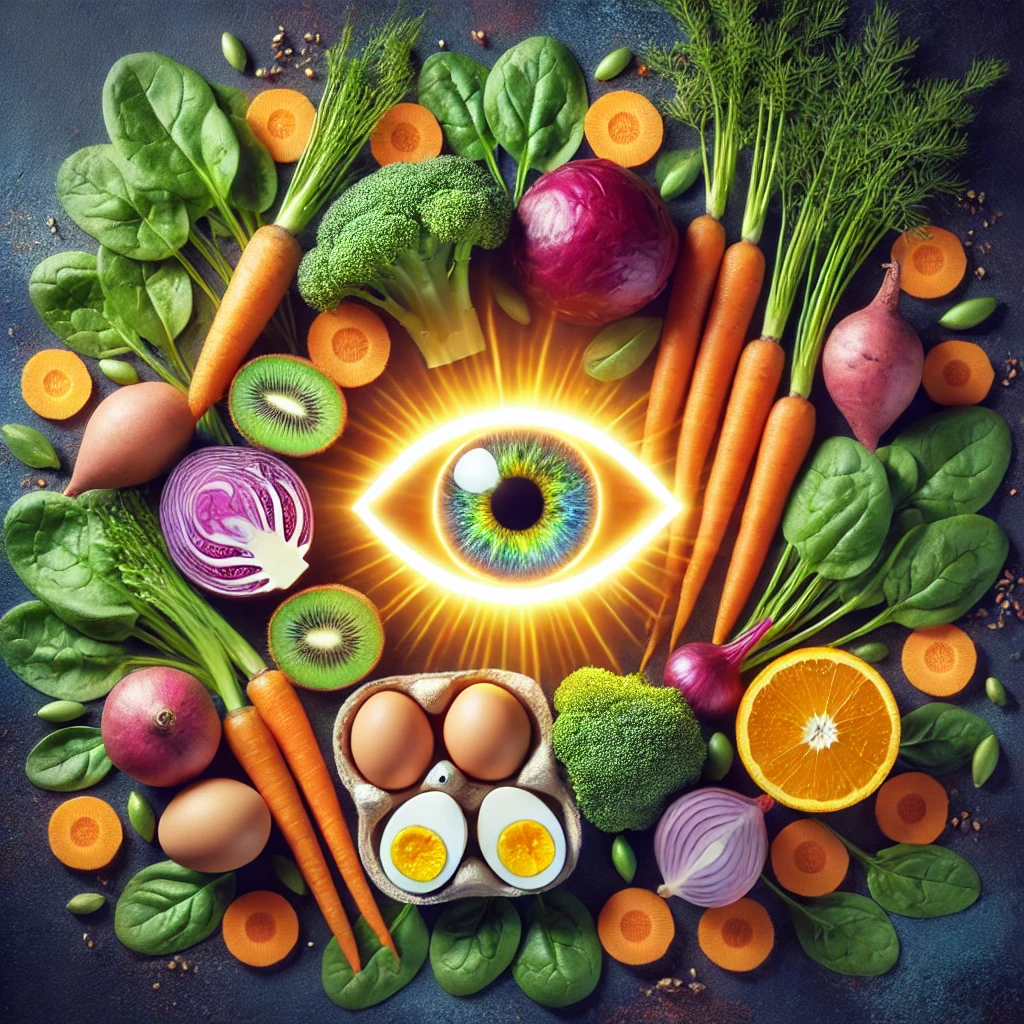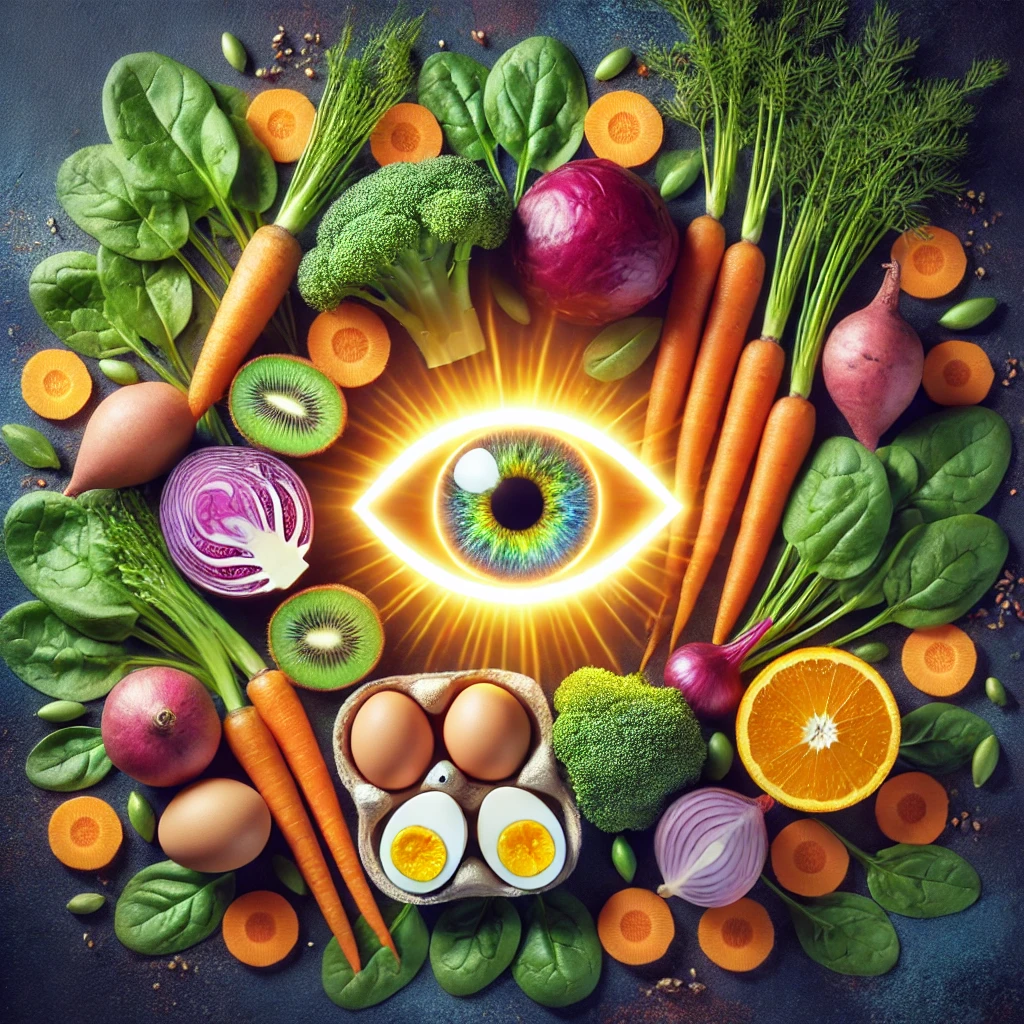The Power of Vitamin A for Healthy Vision
Ever wondered how to keep your eyes sharp and healthy without expensive gadgets or fancy treatments? The secret might already be in your kitchen. One simple yet powerful vitamin—Vitamin A—is a game-changer for maintaining good vision and overall eye health.

How Vitamin A Supports Your Eyes
1. Protects the Cornea
The cornea, the clear front part of your eye, relies heavily on Vitamin A. Without adequate amounts, the cornea can dry out, leading to damage and even vision loss.
2. Maintains Retina Function
Vitamin A is essential for the retina, the light-sensitive layer at the back of your eye. The retina converts light into signals your brain understands. Without enough Vitamin A, this process weakens, leading to impaired vision.
3. Helps You See in Low Light
Vitamin A is a key component of rhodopsin, a protein that enables your eyes to adapt to dim lighting. Without it, navigating in the dark can become a challenge, making everyday tasks more difficult.
4. Shields Against Oxidative Stress
Vitamin A works as a powerful antioxidant, protecting your eyes from damage caused by free radicals and oxidative stress. This helps lower the risk of age-related conditions like:
- Macular degeneration
- Cataracts
5. Boosts Immunity to Prevent Infections
A healthy dose of Vitamin A supports your immune system, making it easier to fight off eye infections and other diseases that could harm your vision.
Where to Find Vitamin A
You don’t need synthetic supplements to get your Vitamin A fix. It’s naturally abundant in everyday foods, including:
- Liver
- Fish liver oil
- Dairy products (milk, cheese, and yogurt)
- Eggs
- Orange and yellow fruits (carrots, sweet potatoes, and mangoes)
- Dark leafy greens (spinach, kale, and collard greens)
Make these foods a regular part of your diet to keep your vision clear and your eyes in excellent condition.
Practical Eye Care Tips
- Wear sunglasses to protect against UV rays.
- Follow the 20-20-20 rule: every 20 minutes, look 20 feet away for 20 seconds.
- Stay hydrated to maintain tear production and prevent dry eyes.
- Limit screen time and use blue light filters.
- Avoid rubbing your eyes to prevent infections.
Your Vision Deserves the Best
Your eyes are invaluable, and protecting them doesn’t have to be complicated. By incorporating Vitamin A-rich foods into your daily meals and practicing good eye care habits, you can support your vision naturally for years to come. For more health insights, visit medicaltimes.io.
Reference website:
- Healthline: Foods High in Vitamin A
- American Academy of Ophthalmology: Eye Vitamins
- Mayo Clinic: Eye Health Tips
FAQs
- What foods are rich in Vitamin A?
Foods like liver, fish liver oil, eggs, orange and yellow fruits, and dark leafy greens are excellent sources. - Can Vitamin A improve night vision?
Yes, Vitamin A supports rhodopsin, a protein that helps your eyes adjust to low-light conditions. - Can Vitamin A prevent cataracts?
While it can’t completely prevent cataracts, its antioxidant properties reduce the risk of age-related eye issues. - What are symptoms of Vitamin A deficiency?
Symptoms include dry eyes, night blindness, and increased susceptibility to eye infections. - Can too much Vitamin A be harmful?
Yes, excessive amounts can cause toxicity. Stick to natural sources and consult your doctor for advice. - How does Vitamin A protect the cornea?
Vitamin A helps keep the cornea moisturized and prevents dryness, reducing the risk of damage. - Can Vitamin A cure macular degeneration?
It can’t cure it but may help reduce the risk and slow progression when combined with other nutrients. - Should I take Vitamin A supplements?
It’s better to get Vitamin A from natural food sources unless prescribed by a healthcare professional. - How can I tell if I need more Vitamin A?
Signs include difficulty seeing in dim light, dry skin, and recurring infections. - Is Vitamin A safe for children?
Yes, in appropriate amounts. Focus on providing Vitamin A-rich foods as part of a balanced diet.
